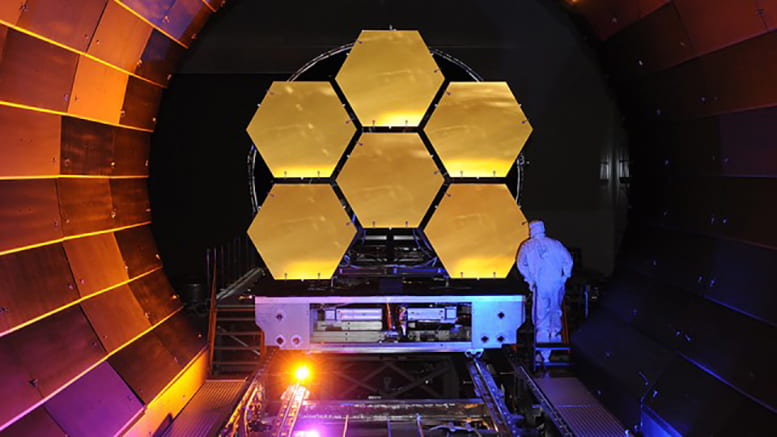Northwestern astronomer Farhad Yusef-Zadeh discusses his fortune in having time on the James Webb Space Telescope, which will be launched into space this month
December 16, 2021

Twenty-five years in the making, the $10 billion telescope is an unprecedented observatory for space exploration. Unlike Hubble, the James Webb Space Telescope will work in infrared light, providing astronomers — including Northwestern’s Farhad Yusef-Zadeh — with the ability to peer into the early life of the universe, view Earth-size planets outside our solar system and learn about familiar and yet-to-be-discovered objects in our solar system.
NASA plans to launch Webb later this month from Europe’s spaceport in French Guiana, and live coverage will air on its website, NASA TV and the NASA app.
“Hubble works mainly in the optical part of the light spectrum and is limited in many ways. Webb is a telescope on steroids, addressing lots of questions. As we monitor how the black hole behaves, Webb will allow us to observe emissions activity on an hourly time scale in two different infrared bands with the same telescope at the same time,” said Yusef-Zadeh. That’s a big technical achievement. It’s very powerful to obtain continuous time coverage. Usually, we can only observe one band at a time and have to switch back and forth.”
Northwestern Now spoke to Zadeh about his work studying the black hole called Sagittarius A* (Sgr A*) and its extreme environment and what Webb will enable him to do. Read the interview.
Science & Technology

Northwestern accelerates quantum research with NVIDIA technology
September 19, 2025
NVIDIA code could help researchers tackle computationally demanding tasks hindering quantum research Northwestern University physicists are using NVIDIA technology to tackle the computationally demanding tasks hindering quantum research. Northwestern theoretical physicist Jens Koch and his research group…

CRISPR’s efficiency triples with DNA-wrapped nanoparticles
September 18, 2025
New system delivers CRISPR machinery more safely and effectively into cells With the power to rewrite the genetic code underlying countless diseases, CRISPR holds immense promise to revolutionize medicine. But until scientists can deliver its…

Passion for the planet: A new generation of environmental stewards starts here
May 29, 2025
Over the last two decades, the Weinberg College-housed Program in Environmental Policy and Culture (EPC) at Northwestern has embraced the humanities and social sciences and cultivated a new generation of environmental stewards. Growing up in…

Northwestern receives $25 million gift to advance adolescent mental health research
May 16, 2025
New institute will study psychology of emerging adults, leading to innovative wellness programming for students at the University and beyond Northwestern University is launching the Institute for Adolescent Mental Health and Well-Being, an interdisciplinary initiative…



